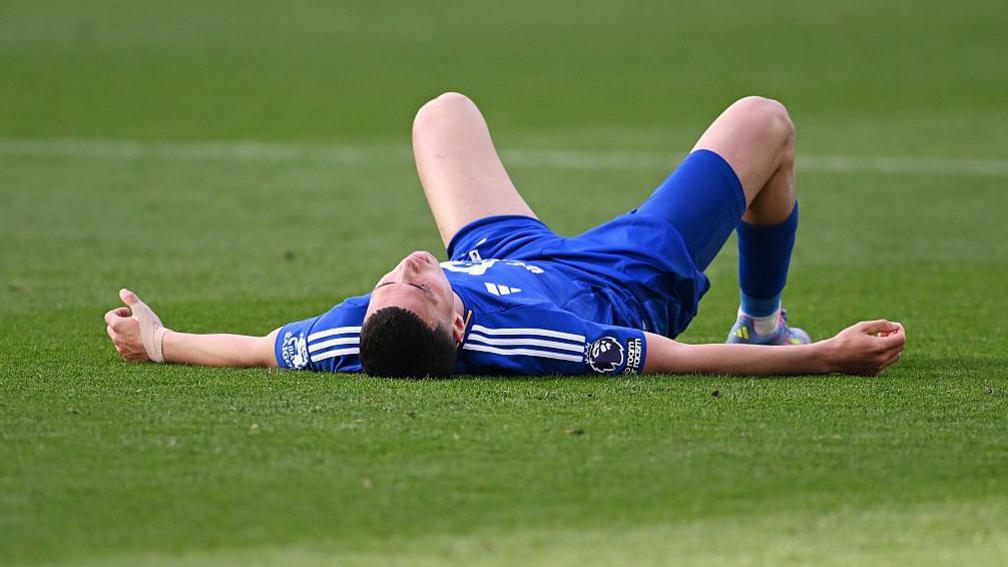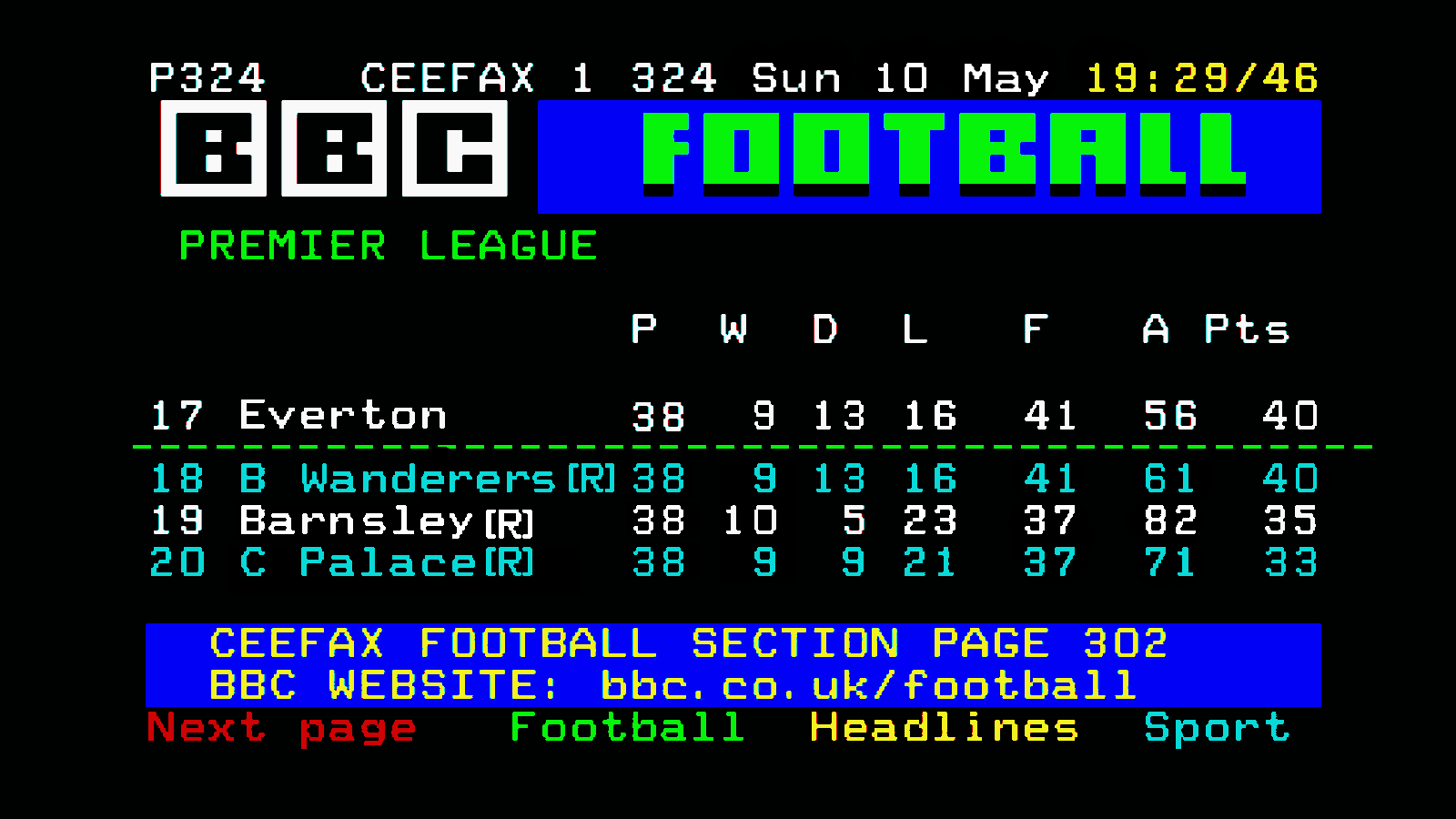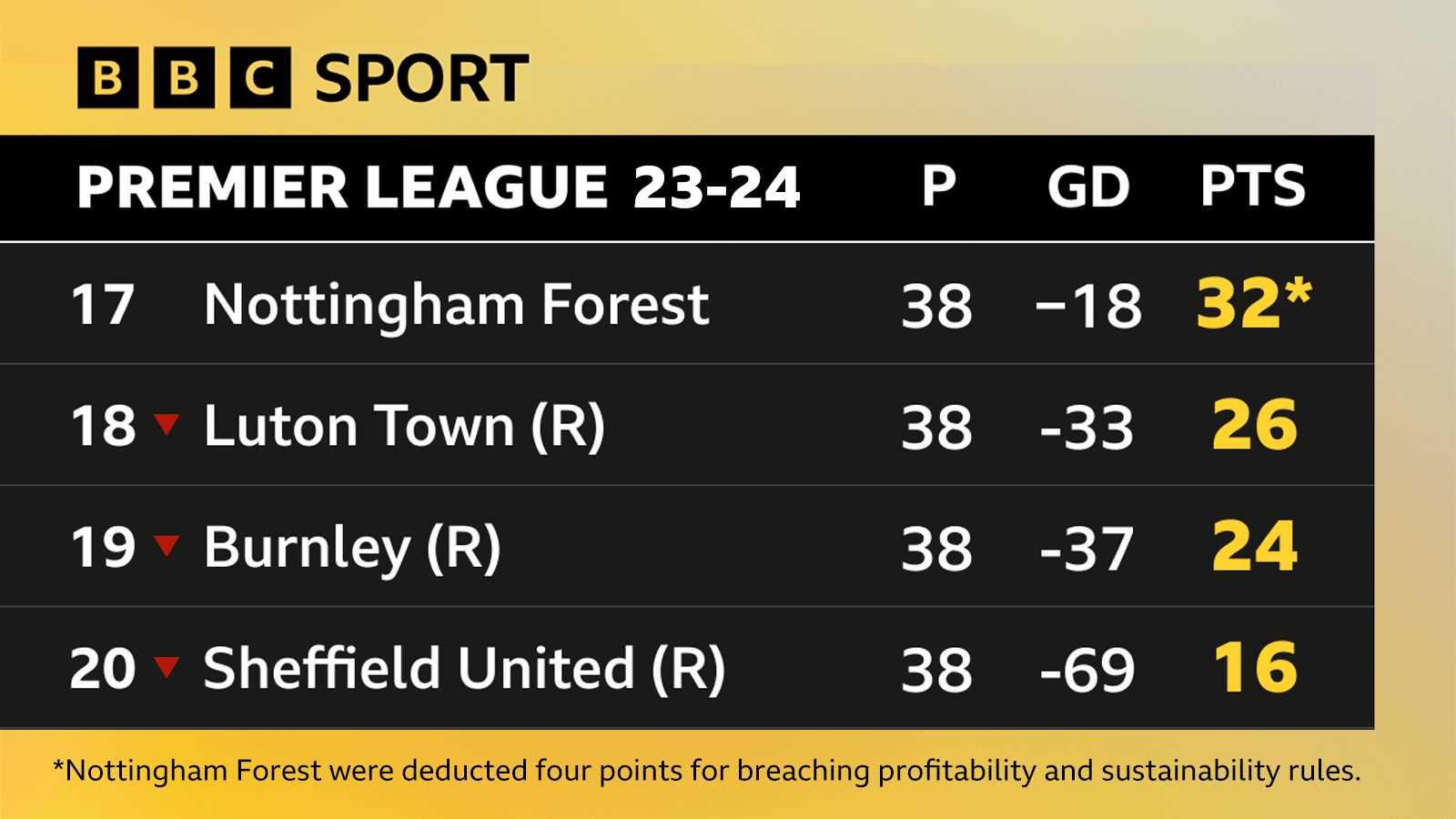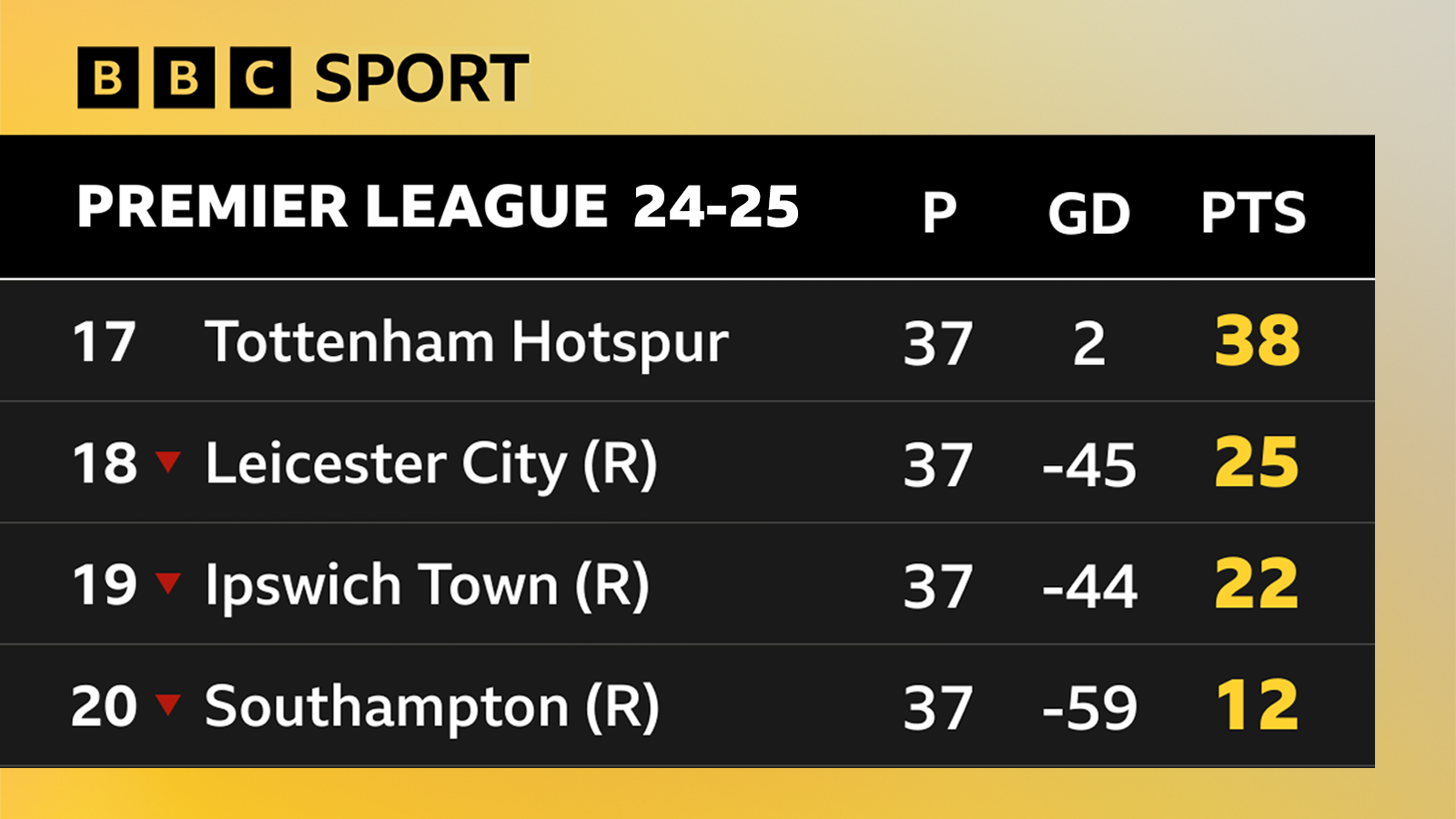Do promoted teams struggle in other European leagues?

Leicester, Ipswich and Southampton all went straight back down to the Championship this season
- Published
They say what goes up must come down.
And for successive seasons, it's happened to all three teams promoted from the Championship to the Premier League.
But it wasn't always like this.
You only have to go back 27 years - to 1997-98 - to find the first season in which all of the teams promoted to the top tier in England were relegated. For the previous 99 seasons - including all those pre-Premier League years - it never happened.
So to see it in successive seasons is an outlier.
In Europe, it is even rarer. In fact, the last time every promoted side was relegated in another top-five European league was 32 years ago.
We should be clear promoted sides are being relegated in these leagues, just not all of them in their first season after reaching the top flight.
Also, in some European leagues, things are complicated slightly by the use of relegation play-offs, which mean a team can finish in the bottom three but end up surviving.
Just to stress, in the table above we are only recording instances in which all promoted teams are relegated.
When has this happened in the Premier League?
- Image source, BBC Sport

Image caption, The 1997-98 season was the first time all promoted sides were relegated straight back to the second tier
1 of 3
It was only two years ago, in 2022-23, when all three promoted sides - Fulham, Bournemouth and Nottingham Forest - remained in the Premier League. Things have only got better for that trio.
Forest are on the brink of Champions League football, while Fulham and Bournemouth were in the running for European places this season. They are great examples of what can happen if you are able to consolidate in the Premier League and capitalise on the increased revenues that brings.
According to Transfermarkt, Forest are now the 23rd most valuable club in the world, with Bournemouth 26th and Fulham 33rd - the lowest of the 17 clubs to remain in the English top flight this season.
But more recent history is mixed for promoted clubs, and the financial disparity only appears to be growing wider. None of this season's Championship clubs, for example, rank inside the top 60 on that list.
Perhaps these past two seasons are a passing anomaly, or maybe it is the sign of a growing gulf between established Premier League teams and the rest of English football.
It's not happening in other major European leagues, and we have to ask why.
Serie A - a tactical battle
Intensity. A product of the Premier League. Perhaps an explanation for the difficulty some sides are having once they reach England's top tier, says Italian football journalist Vincenzo Credendino.
He explains Serie A is a "more tactical league" played at a slower pace. On the pitch there's potentially less of a gap for promoted sides to bridge to compete in Serie A.
You have to go back the 1980s for the only time all three promoted sides went straight back to Serie B. Pisa, Bari, Lecce were the unfortunate trio 39 years ago.
Off the pitch, Credendino cites the potential of historic clubs backed by investment to move up a league and compete.
One such example are Como, who ended the season strongly to finish 10th on their return to Serie A.
Credendino also points to Palermo, who are majority owned by City Football Group and qualified for the Serie B play-offs this season.
In short, if you are promoted and can flex financial muscle you're likely to be in a stronger position to compete with the existing top-flight clubs.
Ligue 1 - room for one more?
"Club ascenseur." The elevator club.
French football journalist Raphael Jucobin shares a phrase used for the likes of Lorient bouncing between leagues. "Too good for Ligue 2 and not good enough for Ligue 1," he says.
In its 93 years, though, Ligue 1 has never had a season in which all promoted clubs were immediately relegated - and there is no sign of that changing.
Jucobin describes the conditions in Ligue 1 as volatile, with rival leagues swooping in to claim top talent and disrupting the upward trajectory of some sides.
Adding to the problem, the financial situation in Ligue 1 is not healthy following the collapse of the domestic TV deal with DAZN.
"It's quite hard to have any long-term planning when there's so much uncertainty," he says.
Back to the theme of ownership, Jucobin believes it's becoming harder for clubs to rise through the leagues and establish themselves in Ligue 1 organically.
A club with financial boosters on will have a stronger opportunity to remain in the top flight once promoted.
He points to Paris FC, who will play in Ligue 1 next season. They are majority owned by the wealthy Arnault family and will be looking up at the ceiling rather than to the elevator.
La Liga - next to join the trend?
In 1967, European champions Real Madrid pipped Barcelona to the league title.
Nothing unusual there, but this was a unique season in Spanish football history for one reason - the teams who came up went straight back down.
Deportivo la Coruna and Hercules - having won their respective regional second divisions - and Granada - promoted via the play-offs - were the teams in question.
It has never happened since, though it is worth noting this year's crop of promoted teams came close.
Real Valladolid, where some fans have grown unhappy with owner Ronaldo, have won just four games since promotion and sit rock bottom of La Liga.
With Las Palmas - promoted two seasons ago - already down, one of Leganes or Espanyol, the other two who came up last summer, will also be relegated on the final day.
"The trend is similar," says BBC Sport columnist Guillem Balague. "In the last few years, 15 teams more or less stay in the division and five go up and down, including a team like Espanyol that could go down for the third time in five years.
"It is all down to money. FFP doesn't allow you to give you an injection of capital that allows a team to either go from small to very big or to survive much more clearly.
"And the other thing is the parachute money in the Premier League is massive. In Spain there is a little bit and it depends on how many years you have been in La Liga - 2.5% of TV rights is dedicated to be shared between three teams that go down, which allows you to sort out your budget, but not much more.
"It is going to happen more and more."
Bundesliga - a different model?
A change from 20 to 18 teams in the Bundesliga meant only two promoted sides entered the 1992-93 season.
Sadly for Bayer 05 Uerdingen and Saarbucken they finished in the relegation zone, 17th and 18th.
But that was the last time outside of England that such a phenomenon has taken place in Europe's top five leagues.
Currently, the second tier is packed with 'sleeping giants' who have the platform to compete.
Cologne and former European champions Hamburg have both secured promotion back to the Bundesliga. Finishing further down the table were sides with huge fanbases such as Schalke and Hertha Berlin.
But the German 50+1 rule, which dictates a club's members retain overall control, also means, in theory, a more level playing field among the majority of clubs.


